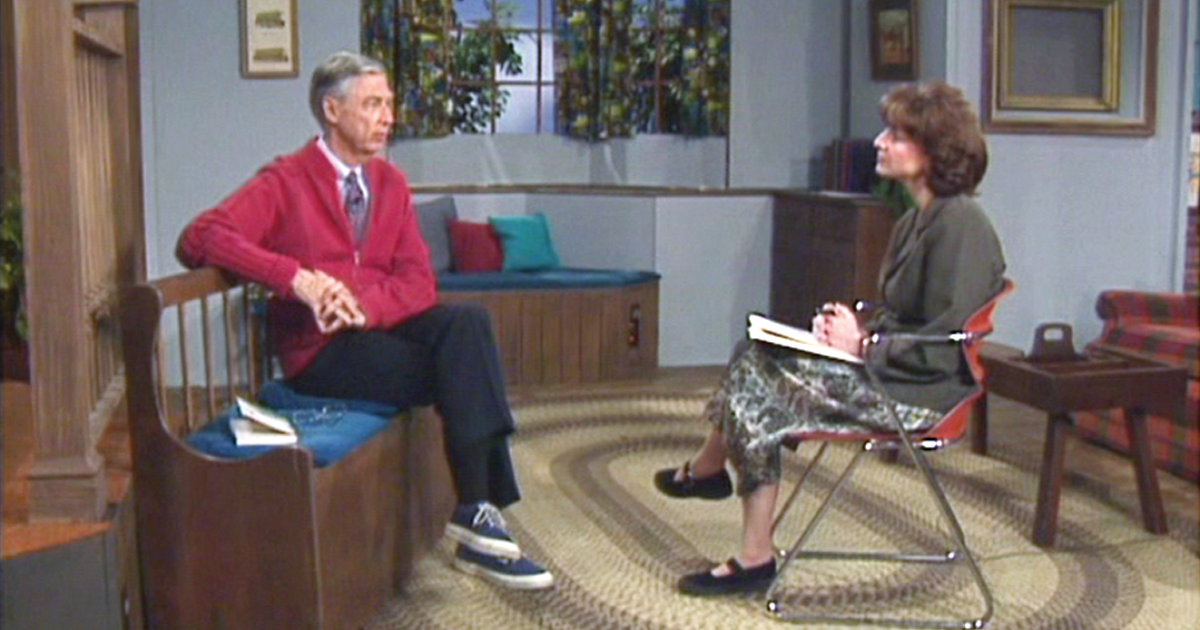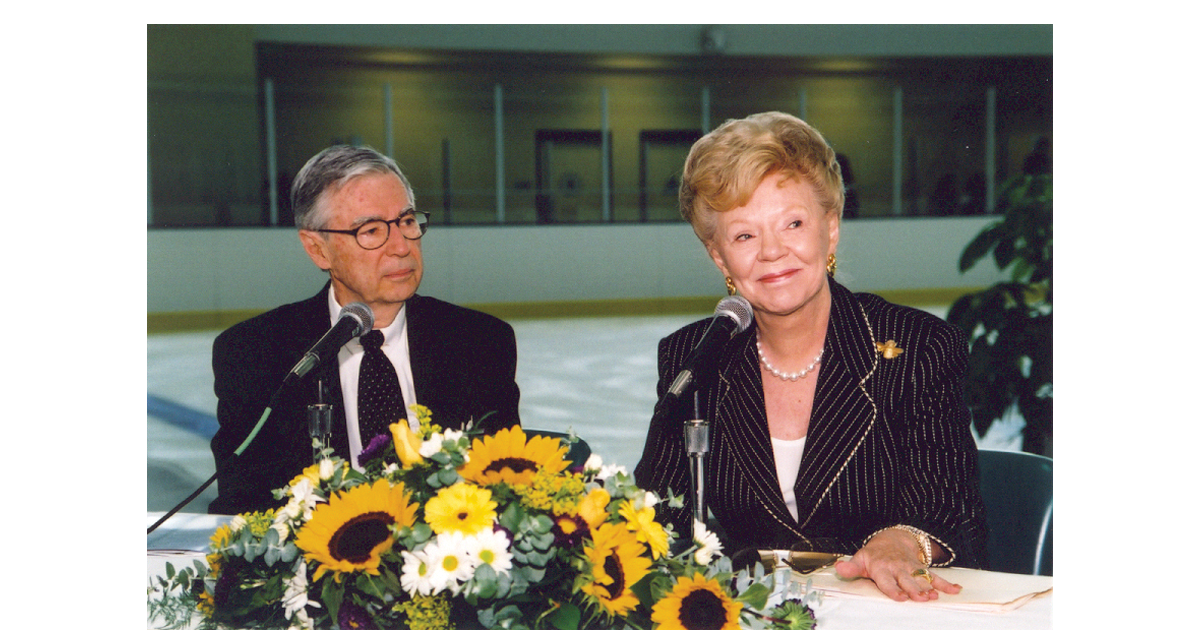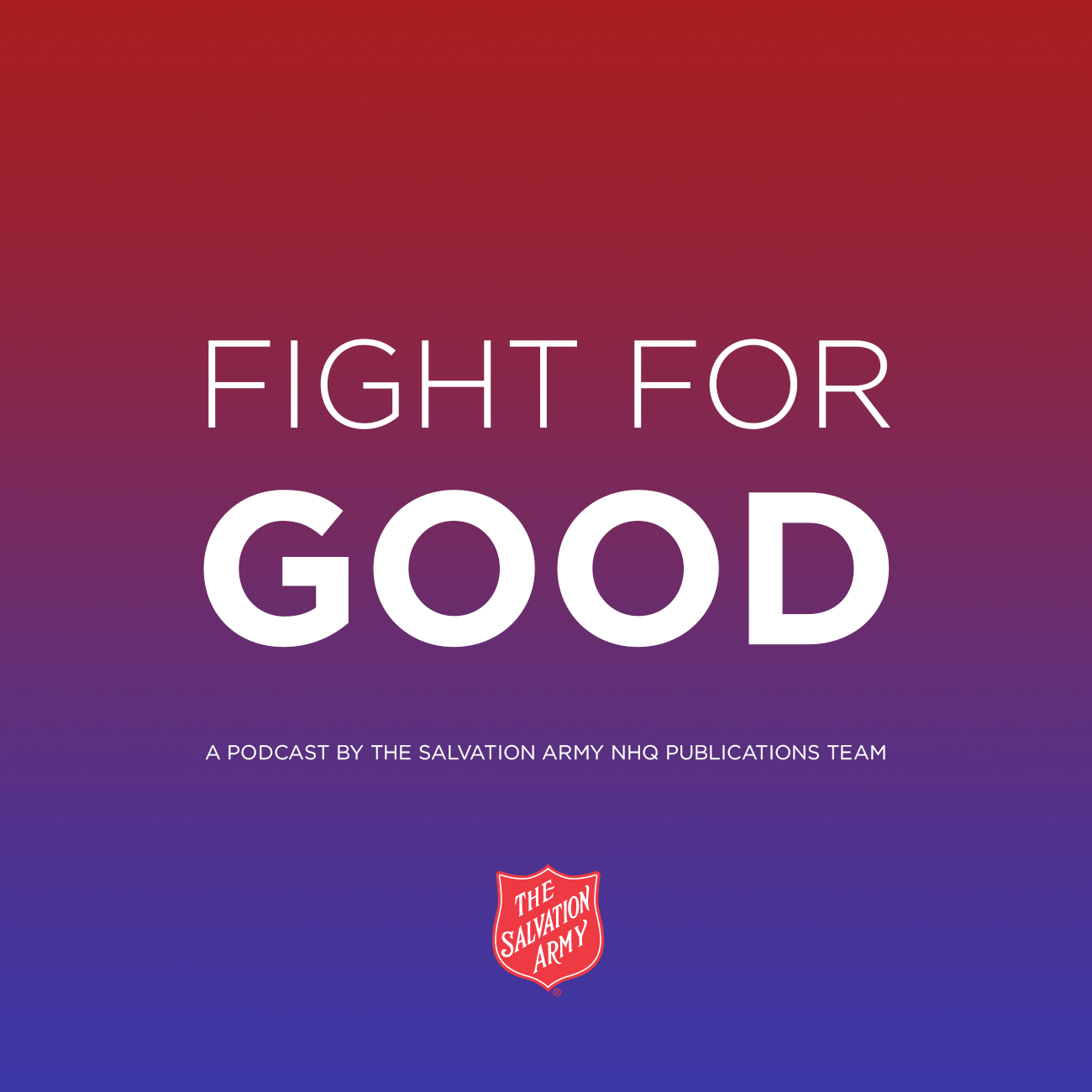EXTENDED: The Simple Faith of Mr. Rogers
Amy Hollingsworth, author of “The Simple Faith of Mr. Rogers: Spiritual Insights from the World’s Most Beloved Neighbor,” shares what motivated this unique man and how his messages address key concerns today.
Amy Hollingsworth,
In retrospect, the simple faith of Mr. Rogers that you cover in your book doesn’t really seem all that simple. How did you get to know him so well?
His faith was simple in execution, but it was certainly not simplistic. What a treasure his friendship was. I still think of him and want to reach out to him often.
I requested an interview with him and didn’t hear back for quite some time. Then, I open the newspaper one night and read an op ed piece by Don Feder called “It’s a Psychobabble Day in the Neighborhood.”
I had done enough research on Mr. Rogers, so I wrote a pithy response back to Don Feder about why he was wrong. I thought, “Well, Mr. Rogers, people really need to know that this kind of bad press is out there.” So, I sent a copy to his office. A few days later, I got the call that he agreed to the interview. But it wasn’t until I got to Pittsburgh that I found out it was because of that letter, and that letter convinced him that I was sincere enough to be trusted. A member of his staff said he rarely gives interviews. “The difference is that you came in love,” It created this foundation of trust between us that just flourished once we met.
What is one of your fondest memories about your friendship with Mr. Rogers?
After coming home having interviewed him for the second time, my five-year-old Jonathan told me he was really scared when I was gone. After much coaxing he finally said, “I thought that someone would think you were pretty, and they would want to marry you and you would never come home.”
I thought it was sweet and silly. Fred calls a couple of days later and I tell him the whole story. I’m laughing and thinking, “Oh, this is so funny.” Fred was stone-cold, quiet Then he very firmly and gently explained to that Jonathan’s feelings were very age appropriate. Every little boy thinks his mom is the most beautiful woman in the world and wants to marry her. He even wrote a song about it called “Going to Marry Mom” about his own experience. He wanted me to know that instead of laughing off Jonathan’s feelings, I needed to legitimize them. That Jonathan’s feelings were valid, even if his fear was completely unfounded. That’s a lesson that not only with my children but with my husband and every relationship I have, and that has really served me well.
I was with Fred’s wife Joanne wife recently. She mentioned that in their generation that as a child you weren’t allowed to express anger or any negative feeling. That was something that Fred really remembered from his childhood. He did not accept this idea that there are some feelings that can’t be expressed.
You could say that Mr. Rogers was ahead of his time. What concerns do you think he would be addressing today?
I think he would be shocked at the state that our world is in. I think he would be speaking out a lot. He probably would be beating the same drums, louder. One of the things he came back to again and again is that everything that is mentionable is manageable. That was something he said over and over again. He wanted to give people permission to express their feelings, and he didn’t put a value judgment on it. Feelings weren’t good or bad, but they could be overwhelming, especially to a child. He wanted to give people ways to express their feelings, especially anger, in ways that did not hurt them or anyone else… that children from the earliest time need to be given ways to express how they feel, that doesn’t hurt them or anyone else. All you have to do is watch the nightly news to see that we still need that kind of advocacy, that we all have powerful emotions, but there are healthy ways to express them.
How did he develop such a deep understanding of that from his own experience?
In “The Simple Faith of Mr. Rogers,” I tell a story of him when he was eight years old and he was being bullied. When he came home, the adults around him said, “Just act like you don’t care, act like it doesn’t bother you and they’ll leave you alone.” Even as an 8-year-old, he knew that wasn’t right. He said “I resented the teasing. I resented the pain. I resented those boys who bullied me for not seeing past my shyness and my sadness. I used to cry through my fingers as I made up songs on the piano.” If there’s any moment in his childhood where Mr. Rogers was born, it was probably that one. He would cry through his fingers as he made up songs on the piano. So, he wanted people to know that there are ways to express how they feel.
All children are sensitive. But he was especially sensitive. Even the child development specialist that he worked with on every “It’s a Beautiful Day in the Neighborhood tv program said, “He never shed the vestiges of childhood.” He felt that if we can remember how we felt in our childhood it will make us much more empathic with our own children.
Many wonders what the motive is behind the mass shootings and expressions of rage among young people. Is it that they are not being parented well? Are they being ignored? Does it stew through the generations? Why is this deep-seated anger exploding?
After the Parkland, Florida school shooting, I was so distressed. It was another one of those times where I just wanted to call him up on the phone say, “Help. What do we do?” He wasn’t there to do that, so I just went through the raw footage of my interviews with him and heard him say that repressed feelings result in concentration camps and wars and everything. He just felt so strongly that children needed to know they could express these feelings, but they could do so in healthy ways.
I wrote an article about that after the Parkland shooting. I had a prison ministry contact me and say, “Can we reprint this article in our prison newsletter? We think the inmates need to hear this message.” In this case, you’re talking about perpetrators of violence, not just the victims or the protesters. So that article where I share Fred’s longing, desire, passion to have people express anger in nonviolent ways and healthy ways went out to thousands of prisoners.
One thing that stands out in your book was his understanding of the importance of sublimation. Who was his mentor was in child psychology?
It was Margaret McFarland. She worked on every program with him for about 25 years until she died. The song that he recited, “What do you do with the mad that you feel?” was something a child asked him. In the song he gives examples. You can pound some clay; you can gather your friends up for a game of tag to see how fast you can go. I asked him one time, on behalf of a child, “What do you do when you get mad?” He said he plays the piano
How was he able to be so focused on individuals in the moment?
It was the time that he spent alone. That seems like a contradiction, but the time he committed in his day to solitude, to prayer, to reflection, to silence, made him able to pay attention to the people around him. People talk about him reverently, and I do, too. But I don’t think what he exuded was just natural to him. It’s not natural to anybody. Everything that he did was cultivated, like his ability to laser focus on one person at a time. He didn’t watch television. He didn’t let himself be distracted by the things that we’re all distracted by. Because of that, he was really in the moment when he was with another human being. He worked at it. He sincerely cared about you; about the person he was with. I think that ability was born out of his solitude.
Who instilled such a deep faith in him?
He was raised in a family of faith, but he was also influence by the Benedictine Monastery that bordered the family’s backyard in Latrobe, Pennsylvania. I think it was the first Benedictine monastery in the United States.
In your book, you covered the pillars of Fred Rogers’ life. How have those pillars influenced your own faith walk?
I’m probably much closer now to the person that he knew I could be now than when I first met him. He knew there was some rigidity in my thinking. Sometimes he would gently nudge me in a different direction. Sometimes not so gently.
The emphasis on silence has become so important in my life. When I travel now, I never turn on the television or music or anything in my hotel room. In honor of him, I always keep the room quiet, whether for a day or more. I have done that since he passed away. Abiding, I would call it. He knew that silence leads to reflection which leads to appreciation and then to thankfulness. When we’re quiet and silent, we have a deeper sense of our gratitude for the things that God has done in our lives. Fred helped me cultivate an openness to the mystery of faith.
No doubt he had his own dark side to wrestle with. Do you know what he battled on a personal level?
My prayer has always been that we honor him not as a shadow of who he was but who he really was in all his complexity, because he understood that people are complex. He wrote a song that says, “Sometimes people are good, and they do just what they should. But the very same people who are good sometimes are the very same people who are bad sometimes. It’s funny but it’s true. Isn’t it the same for me and you?” I literally walked around my house singing that song when a relative who was visiting was misbehaving. I had to catch myself and give her the benefit of the doubt.
Puppets Fred spoke through on the TV show’s neighborhood of make believe were all aspects of his personality—the pompous King Friday, the mischievous Lady Elaine, and Daniel the Striped Tiger.
He was so calm. For my son, it was just magnetic. That’s how I first met Mr. Rogers, through the eyes of my son and my daughter and the gift he gave them. My son was able to express his first feelings of sadness after watching Mr. Rogers’ Neighborhood. He had never used the word before and he came to me after the program a
You make it clear in your book just how dedicated Fred Rogers was to make his thoughts, words and deeds align with the promptings of the Holy Spirit. Yet he did not proselytize. How would you describe his understanding of God’s nature?
He didn’t proselytize because he was on public television and that wasn’t the venue for that. But he was very vocal about his faith, in his relationships with people, in letters he wrote and sermons he shared and things like that. Even though he wasn’t allowed to talk about God on public television, that didn’t keep him from infusing his faith into everything he did. He told me that every day when he walked into the studio door, he would say, “Dear God, let some word that is heard be Yours.” Then he said this, which really struck me. It’s for all of us, whether it’s television, whether we write books, whether we do radio, whether we publish magazines. He said, “I’m so convinced that the space between the television set and the viewer is holy ground and what we put on television can, by the Holy Spirit, be translated into what someone needs to hear and see.” Without that, he said, “It’s all dross as far as I’m concerned.”
If I were to sum up his theology, I would call it a theology of neighbor. His definition of neighbor is anybody you happen to be with at the moment, especially if that person is in need and so, right away there’s no loophole. Everyone’s your neighbor. Then he says, “Once you have that understanding, you have two choices—whether to be an accuser or an advocate.” Here’s a quote from him: “Evil would like nothing better than for us to feel awful about who we are. With that in our minds we would see what’s awful about our neighbor, in fact, look for what’s awful about our neighbor.” But he added, “Jesus is our advocate and He want us to feel good about God’s creation within us, so that we would look through those eyes and only see what’s good about our neighbor.” Seeing things through God’s eyes, that was Fred’s theology. That was the crux of his faith. Are we going to be an accuser like evil or we’re going to be an advocate like Christ? If we’re going to be an advocate like Christ, then we’re going to have to look through His eyes at our neighbor and only see what’s good about that person.
Some characterized him as soft weak, as promoting self-esteem on his TV show at all costs. Looking back, he was so courageous in advocating for children and how we treat one another. What filled his passion?
He probably would say that he needed an advocate at certain times in his childhood and didn’t feel like he had it just because of the people around him didn’t understand. When I asked him why he got into television, he said it’s because he saw people throwing pies on other people’s faces. He said, “That was such demeaning behavior and if there’s anything that makes me mad, it’s one person demeaning another.” Then for emphasis, he said, “That really makes me mad.” He didn’t go to seminary because he saw

I wonder if he had any idea of what his future held for him.
I don’t think so. He told a minister friend, “I wasn’t even sure I was being led when I first went into television.” He was just so laser focused on trying to look at people with those eyes and see what’s good about them.
What can we learn from Fred Rogers’ sense of himself?
One of the things he told me during our first meeting was that the best gift you could give
That’s true friendship. What also strikes me is how vulnerable he made himself.
There were times on the show where things didn’t go well or he was trying to break dance or there’s this one clip where he’s doing the head, shoulders, knees and toes and he can’t get the rhythm right and, he didn’t edit that out. Contrast that with the Facebook, Instagram world where we edit out all the bad and we air-brush the good. I think people are craving that kind of authenticity, especially young people who have kind of grown up dedicating shrines to themselves, through social media. I think people are so hungry for authenticity and it’s hard to find, unfortunately. He just was the most thoughtful person. gets more precious with time when you realize it’s hard to find the kind of person he was and that’s sad.
I want to touch on your most recent book “Runaway Radical” which you wrote with your son Jonathan, which deals with his desire to serve the Lord which led to his being exploited by the legalism, judgmentalism and vanity to which Christians are susceptible. How do you deal with that now in light of Fred Rogers living out his faith authentically?
I wish so badly that Fred was here during that time. It’s tragic when you have a young person who’s so dedicated to his faith only to be exploited. But I go back to what Fred said to me during our first meeting when I told him that Jonathan expressed his very first sadness after watching an episode of Mr. Rogers’ Neighborhood. The only way he got through that upheaval that really the opposite of faith is because he was able to express his sadness. That comes out as we wrote the book together, his voice gets stronger and stronger as he tells more and more of his story. But I think that– I think I will just go back to his theology of neighbor, that everyone that we meet in life is our neighbor and we have to make the choice every single day whether we’re going to be an accuser of that person or an advocate for that person. If we want to emulate Jesus, then we’re an advocate. If we want to emulate evil, then we’ll be an accuser.
He said one time when talking about forgiveness that “The one thing that evil cannot stand is forgiveness… It’s so important when you can begin the process of forgiving someone.” I always remember how he phrased that because he didn’t say, “It’s so important when you forgive somebody.” He said, “When you begin the
How did you get into the writing world, the journalistic world? How did God call you to that?
I have wanted to write since I was a little girl. I went to a little parochial elementary school. They couldn’t afford textbooks or air conditioning. One hot afternoon the teacher had us all lay our heads on our desks and she read poetry to us for the first time. I was captivated and k

Fred Rogers, a personal friend of Joan Kroc, spoke during the dedication of the first Ray and Joan Kroc Corps Community Center: “What a beautiful day in this neighborhood,” he said. “The Bible begins in darkness, then God said, ‘Let there be light!’ He didn’t condemn the darkness but created light. What a joy to be here celebrating this creation by Joan Kroc and The Salvation Army of San Diego.”
Mr. Rogers’ Remarks at Kroc Center








